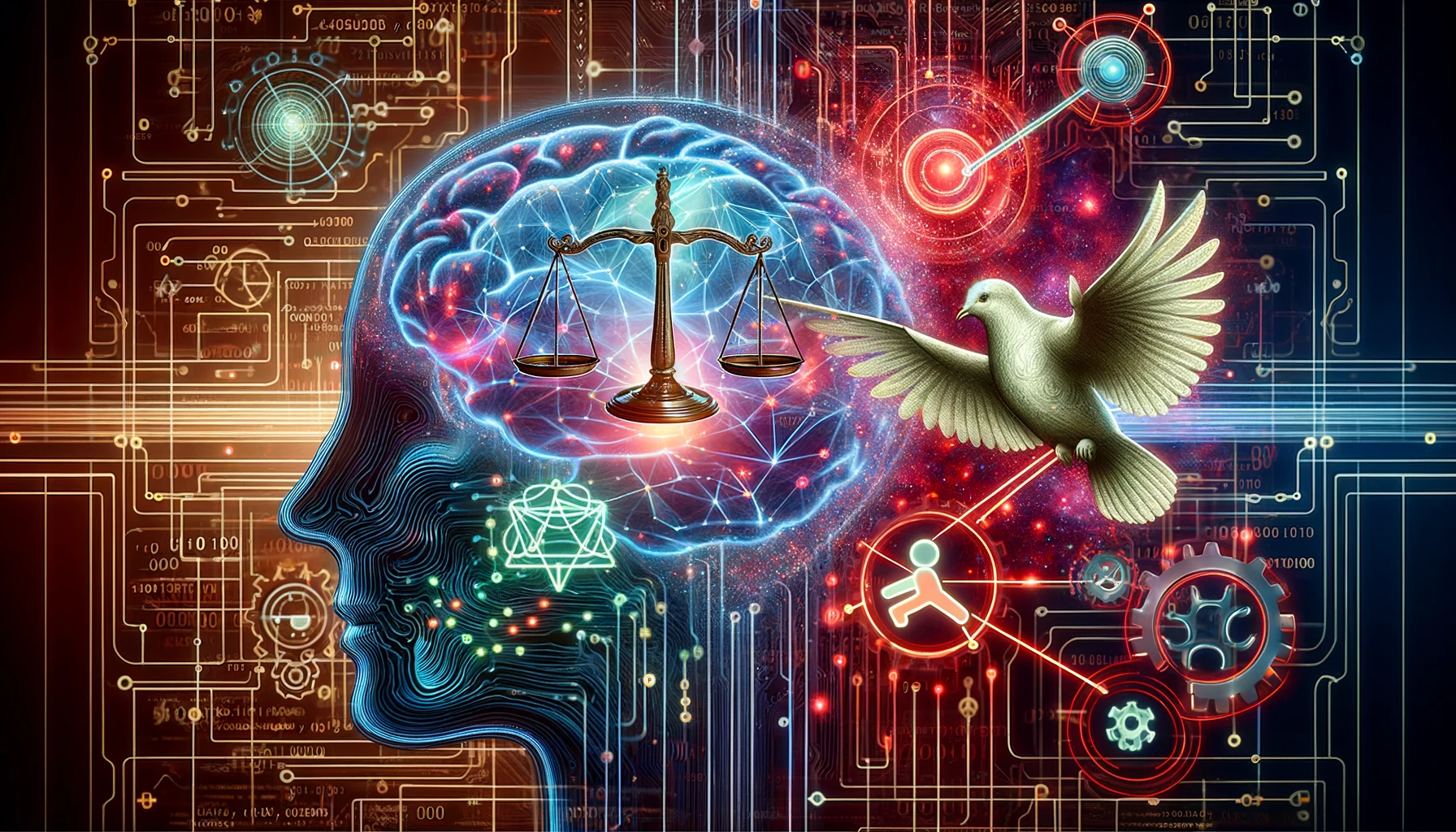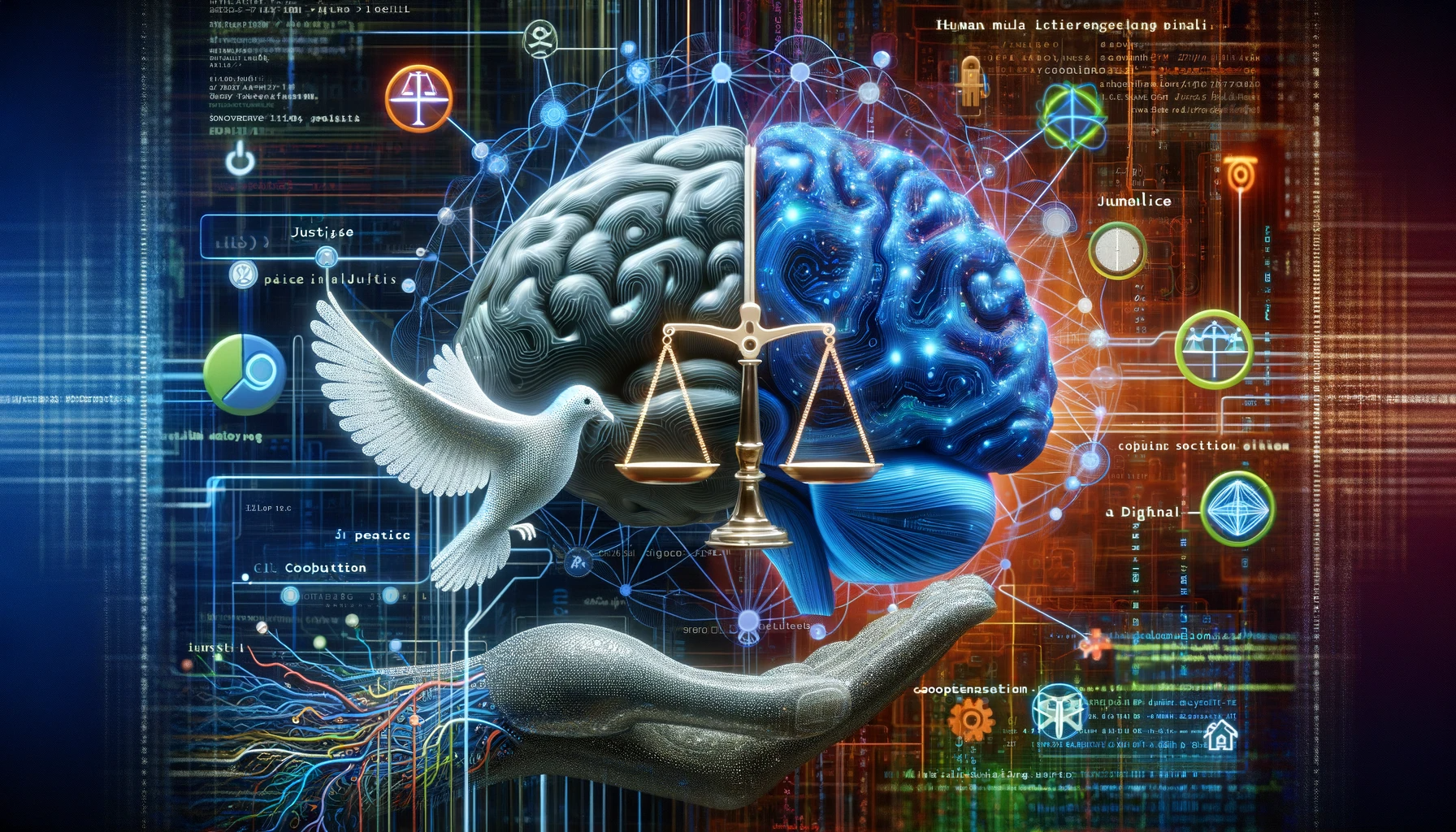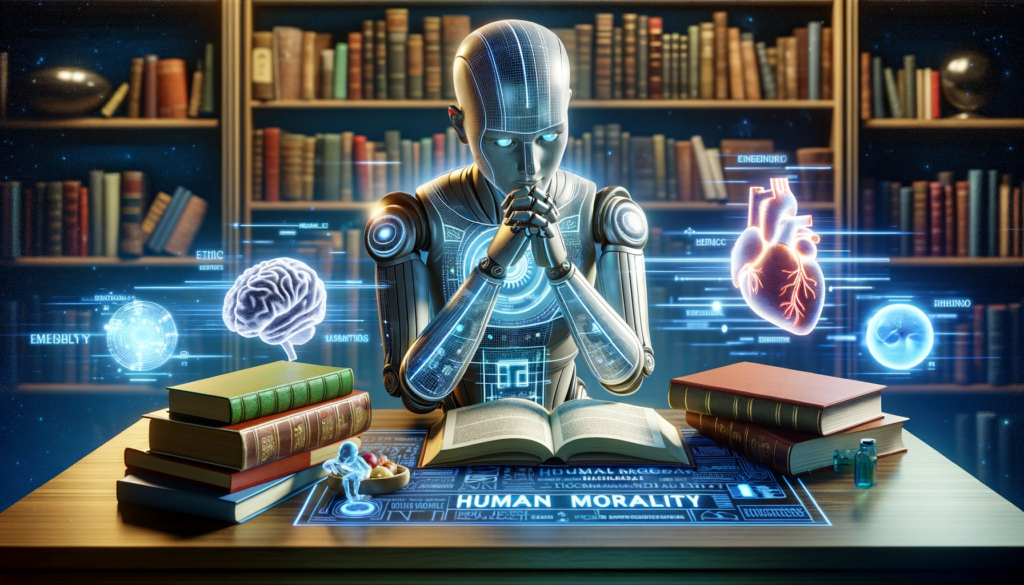Artificial Intelligence (AI) has been making significant strides in recent years, evolving from basic rule-based systems to advanced machine learning models and neural networks. With each advancement, AI becomes more capable of performing complex tasks, from image recognition to natural language understanding. However, one fundamental question looms over this progress: Will AI eventually understand human morality?
Human morality plays a pivotal role in our decision-making processes, influencing everything from personal choices to societal norms and laws. It is the set of values and principles that guide our actions, helping us distinguish between right and wrong. The intricate web of moral considerations is deeply rooted in cultural, social, and individual perspectives.
The Role of Morality in Human Decision-Making
To comprehend the significance of AI understanding human morality, it’s essential to recognize the central role morality plays in human behavior. Morality serves as the compass that guides our actions and judgments. It encompasses a wide range of ethical principles and moral frameworks that help us navigate the complexities of life.
At its core, morality is about distinguishing between what is morally permissible and what is not. It helps individuals make choices that align with their values and beliefs. For example, a healthcare professional faces moral decisions daily, determining the best course of action to ensure a patient’s well-being while adhering to ethical standards.
The study of morality includes exploring concepts such as fairness, justice, empathy, and altruism. These concepts underpin our interactions with others and shape our sense of right and wrong. Morality is deeply ingrained in our societal fabric, influencing laws, cultural norms, and ethical codes.
AI’s Evolution and Current Understanding of Morality
AI has come a long way since its inception. Initially, AI systems were rule-based, following predefined instructions and lacking the ability to adapt to new situations. With advancements in machine learning and neural networks, AI has transcended these limitations, becoming more adaptable and capable of learning from vast datasets.
However, AI’s current understanding of human morality is far from comprehensive. AI systems excel at tasks like image recognition and language processing, but their grasp of moral concepts remains rudimentary. While AI can mimic certain aspects of human decision-making, it lacks true comprehension of the ethical nuances that govern human actions.
AI applications that involve moral considerations, such as autonomous vehicles and medical diagnosis systems, are designed with predefined rules and guidelines. These rules are created by humans who attempt to encode ethical principles into AI algorithms. While these systems can make decisions that align with these predefined rules, they do not possess a genuine understanding of morality.

In autonomous vehicles, for instance, AI can be programmed to prioritize the safety of passengers and pedestrians. However, it lacks the capacity to engage in moral reasoning or to truly understand the gravity of decisions like choosing between the safety of the car’s occupants and that of pedestrians. Instead, it relies on pre-established rules and algorithms.
As AI continues to advance, the question arises: Can we teach AI systems to understand human morality on a deeper level, beyond mere rule-based decision-making? This question forms the core of the ongoing research and ethical discussions surrounding the intersection of AI and human morality.
Challenges in Teaching Morality to AI
Teaching AI systems about human morality is a formidable challenge, primarily due to the intricate and multifaceted nature of moral principles. Morality varies across cultures, societies, and individuals, making it difficult to create a universal framework that AI can grasp.
- Cultural and Contextual Variations: Morality is not a one-size-fits-all concept. Different cultures have diverse moral values and norms. What is considered morally acceptable in one culture may be deemed unethical in another. Teaching AI to navigate these cultural and contextual variations is an intricate task.
- Bias and Fairness: AI systems often inherit biases present in their training data. If the data used to train AI models contains biases, the AI can perpetuate and amplify these biases, leading to unfair or discriminatory decisions. This raises ethical concerns as AI may inadvertently adopt biased moral perspectives.
- Complex Moral Dilemmas: Morality often involves intricate moral dilemmas where there is no clear-cut right or wrong answer. Teaching AI to grapple with these dilemmas and make morally sound decisions in ambiguous situations is a substantial challenge.
Progress Towards Ethical AI
Despite these challenges, significant progress has been made in developing AI systems that incorporate ethical considerations. Researchers and organizations are actively working to create responsible and ethical AI. Here are some notable advancements:
- Ethical AI Frameworks: Ethical AI frameworks and guidelines have been established to ensure that AI systems adhere to ethical principles. These frameworks aim to mitigate biases, promote fairness, and encourage transparency in AI decision-making processes.
- Explainable AI: Efforts have been made to make AI more explainable, allowing humans to understand the reasoning behind AI decisions. Explainable AI helps build trust and accountability in AI systems.
- Interdisciplinary Collaboration: Collaboration between AI researchers, ethicists, and social scientists has grown. This interdisciplinary approach fosters a better understanding of the ethical implications of AI and informs the development of morally responsible AI.
- AI Ethics Boards: Some organizations have established AI ethics boards to oversee the ethical development and deployment of AI technologies. These boards provide guidance on AI-related ethical issues and ensure compliance with ethical standards.
Ethical Dilemmas and AI’s Moral Understanding
To grasp the challenges AI faces in understanding human morality, it is essential to explore specific ethical dilemmas across various fields:
- Healthcare: AI-driven medical diagnosis and treatment recommendations may encounter moral dilemmas, such as deciding on organ transplant recipients or end-of-life care.
- Finance: In the financial sector, AI algorithms make decisions about credit approvals and investment strategies. These decisions can have significant ethical implications, especially regarding fairness and transparency.
- Criminal Justice: AI is used in predictive policing and sentencing recommendations, which raises questions about fairness and potential bias in decision-making.
- Autonomous Weapons: The development of autonomous weapons systems that can make life-and-death decisions on the battlefield raises profound moral and ethical concerns.
AI’s understanding of these dilemmas is limited to predefined rules and patterns. It lacks the capacity for nuanced moral reasoning, empathy, or contextual understanding, making it challenging to navigate complex moral landscapes.

The Future of AI and Human Morality
The future of AI’s understanding of human morality is both promising and uncertain. While AI will continue to advance, achieving a deep and genuine comprehension of morality akin to humans remains a distant goal.
AI can be expected to improve in ethical decision-making, with greater emphasis on reducing biases and making AI systems more transparent and explainable. Interdisciplinary collaboration will play a crucial role in shaping AI’s ethical development.
However, achieving a complete understanding of human morality, with all its cultural, contextual, and emotional nuances, is a complex endeavor. AI will likely remain a tool that can assist in ethical decision-making but cannot replace the depth of human moral reasoning and compassion. Balancing the benefits of AI with the need for ethical and moral oversight will be an ongoing challenge as AI continues to integrate into various aspects of our lives.
